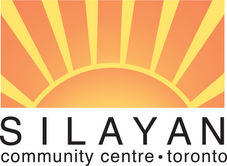Lured by the promise of a better life, hundreds of foreign-trained nannies have found themselves working illegally in menial jobs, without their passports and owing thousands to job agencies
[click on the underlined link above, to the Toronto Star article to read more]
DALE BRAZAO
ROBERT CRIBB
Four months after being lured to Canada, housed in a basement and pressured by a nanny recruiter to work illegally, Filipina Joelina Maluto summoned the courage to take back her life.
Desperate and disillusioned, Maluto stood on the doorstep of the woman who had brokered her entry to Canada – nanny recruiter Rakela Spivak – and demanded return of the passport that had been taken from her.
Maluto claims in court documents that after her promised job with a Toronto family turned out to be bogus, she joined 16 other unemployed Filipina nannies sleeping on the floor of Spivak's basement "in custody, detention, imprisonment and incarceration, without proper food ... harassed, frightened, scared." She said she and the other nannies were "exploited to work for Rakela and under stress, pressured, pushed and oppressed."
Following a curt exchange, Spivak handed Maluto, a demure 44-year-old mother of four, her passport and then served Maluto with a lawsuit claiming the nanny owed $3,500 in brokerage fees.
Maluto's story of mistreatment is being played out frequently across Ontario.
A Toronto Star investigation has found that the popular federal Live-In Caregiver Program has become a nanny trap. Hundreds, maybe thousands, of foreign caregivers have paid $5,000 or more to come to Canada to care for children or the elderly during the last decade – jobs that too often turn out to be fake. Once here, their federal contracts are void. Faced with what is for them a crushing debt, some are forced to work illegally at part-time, sometimes menial jobs; others are deported.
Federal authorities are turning a blind eye to this exploitation.
Documents obtained by the Star show Canada Border Services Agency officials believe there is "ongoing fraud and misrepresentation" within the program, but the immigration and human resources departments are not taking action.
The Star presented its investigative findings to Immigration Minister Jason Kenney who said his department is aware there is abuse in the program.
"We have this whole industry, most of which is unlicensed and unregulated, and large numbers of unscrupulous operations in Canada and throughout the world who exploit people's dreams and hopes to come to Canada," he said.
Kenney says he has asked his officials to recommend changes to tighten controls over the program.
The Star has interviewed two-dozen caregivers who came to Canada over the past five years. Almost all arrived to find their employers did not exist or had hired someone else.
"It's a human depot," said Frank Luna, the labour attaché with the Philippine consulate in Toronto. "The exploitation has been so widespread and going on for so long that the perpetrators no longer feel or see evil in what they do."
In an interview, Spivak said she runs a reputable business – Rakela Care International – that brings about 200 foreign caregivers to Canada each year, mostly Filipinas coming via Hong Kong. She denied housing nannies in her basement, and claimed Maluto used her to get to Canada.
"They come here and they use me and they run away," said Spivak, whose advertisements overseas promise "real jobs" and "real employers" that will make a prospective nanny's "dream come true."
Spivak said it is not her fault if employers who use her services decide they do not want a nanny.
"It's nothing to do with me. I never know until they arrive if the client wants them," Spivak said.
In an interview, Spivak would not address allegations that her agency is violating the rules of the federal program and is exploiting nannies with high fees while failing to deliver the promised jobs.
Instead, she talked of how she trains all her nannies to do laundry and cook; and produced cards and a guest book, filled with supportive comments from nannies expressing thanks for her help.
The 17-year-old federal Live-in Caregiver Program, designed to fill a shortage of nannies, allows Canadians to import foreign caregivers through employment agencies, which in Ontario are neither regulated nor licensed.
Anyone can open a nanny importing business. The Internet is replete with ads from dozens of Ontario agencies claiming to have nannies on hand.
The promised payoff for the nannies is a chance at landed immigrant status after two years of work. The number of foreign nannies given permits to work in Canada has tripled in the last five years (from 3,458 in 2002 to 11,878 in 2007, the most recent information available). Most are from the Philippines.
Likewise, the number of approvals Canadian families received to hire overseas nannies – issued by Human Resources and Skills Development Canada – hit nearly 36,000 last year, about 11,000 more than were issued two years before.
A border services source told the Star the level of fraud in the program is also growing.
On many days "at least 90 per cent of the women coming in as caregivers come in for bogus employers," said one official on the condition of anonymity. "The minute they start working illegally they are open to exploitation by both the agencies and the employers.
"This is clearly human trafficking," the border services source said.
A bulletin from the Anti-Fraud and Human Trafficking Section of the Canada Border Services Agency last March cites a "trend occurring in which dishonest employment agencies sign up fraudulent 'employers' to bring live-in caregivers to Canada but the contracts disappear once the caregivers arrive," the memo reads. "The caregivers are innocent and are left obligated to pay the agency fees but are left without employment."
But instead of going after the agencies, the government nabs some of the nannies, with the authority of a 2007 Federal Court ruling that found caregivers with bogus contracts cannot remain in Canada even if they find a legitimate job.
"This is so unfair to these women who have given up everything and taken on so much debt to come here and work," said Pura Velasco, of the Caregivers Support Services Centre. "We have to stand up as a community and make the government account for its lack of respect for us."
Advocates such as Velasco regularly host meetings across the GTA where nannies speak angrily about their predicament.
One recent meeting in a North York auditorium attracted more than 120 nannies. They complained openly about the fees, and the bogus families. Some talked about being forced to work 12- to 15-hour days without overtime, days off or even minimum wage salaries.
Others complained of isolation, lack of nutritious food and mistreatment by employers.
"We look at Canada as the land of milk and honey," said Mel, a 50-year-old Filipina nanny and mother of two children in the Philippines shortly after two Star reporters helped her leave a home where, she said, she had been verbally abused and mistreated.
"Everyone wants to come to Canada – until they're here."
Marsha Mason, director of Intercede, a non-profit agency that counsels domestic workers, said most of the 5,000 cases the agency handles each year are Filipina caregivers.
Mason says she recently gave $100 from her own pocket to a nanny who didn't have enough to buy sanitary napkins and deodorant.
The practice of charging fees to the nannies to secure them work is banned by governments in all western provinces, but not in Ontario. The Philippines government also bans the practice, but it still goes on, with many agencies getting around the laws by recruiting nannies working in Hong Kong, Singapore and Dubai.
Some nanny advocates say agencies should charge families for arranging a caregiver. While some respectable agencies do this, they say they lose business to agencies that just charge the nanny. Some agencies charge both the employer and the nanny.
Memos obtained by the Star show federal enforcement officials have repeatedly warned their bosses that the program leaves "innocent victims" open to exploitation by both agencies and employers. One memo from the Border Services Agency lists about 20 Toronto-area Live-In Caregiver agencies and individuals suspected of fraud, and recommends they be prosecuted.
Another memo from an enforcement officer at Pearson International Airport states the problem is widespread.
"Again today we had another live-in caregiver with no employer," the memo reads. "The integrity of the program seems to be in jeopardy."
At Pearson, some officials call to see if an employer exists. Most do not. Typically, the women are allowed to enter the country, are picked up by an agency driver, and then housed in basements or dingy apartments run by the agencies.
For nannies who can't afford to pay their placement fees up front, some agencies offer financing by closely related companies that charge interest of up to 20 per cent.




No comments:
Post a Comment